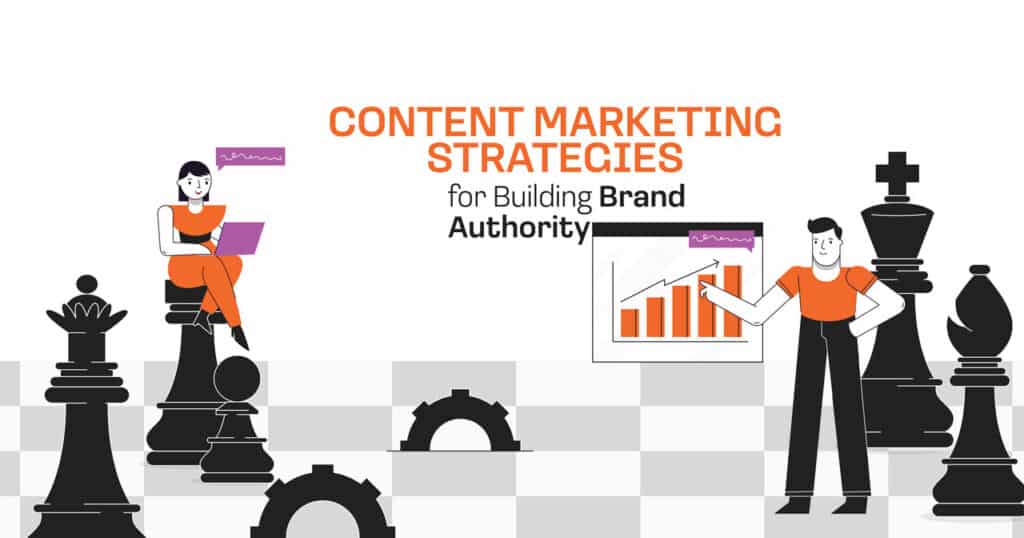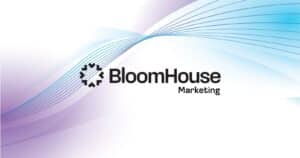In the fast-paced world of digital marketing, building brand authority is crucial for standing out in a crowded marketplace. Content marketing plays a pivotal role in this process by establishing your brand as a leader in your industry. Digital marketing strategies that focus on authority not only enhance your brand’s credibility but also drive meaningful results.
The Power of High-Quality Content
Creating valuable and relevant content is fundamental for building brand authority. Ensure your content addresses your audience’s needs, uses natural language, and is well-structured. High-quality content improves your site’s visibility and engages your audience effectively. This means producing types of content that resonate with your target audience, such as blog posts, explainer videos, and social media content. Content creation also requires attention to detail to ensure that every piece of content aligns with your brand’s voice and goals.
Moreover, consider leveraging various forms of content marketing like infographics, email campaigns, and podcasts to further engage your audience. Content marketing statistics show that content types like these can significantly boost engagement levels, especially when distributed across social media platforms and other social channels.
The Importance of Engagement and Thought Leadership
Engaging with your audience and establishing thought leadership are crucial for enhancing brand authority. Building relationships through meaningful interactions and showcasing your expertise can position your brand as a trusted leader in your industry. Consider leveraging influencer marketing and user-generated content to further enhance your credibility. Customer engagement can be amplified by incorporating interactive elements into your content, such as quizzes or polls, which can also help identify content gaps in your strategy.
The Role of SEO in Visibility and Authority
Effective search engine optimization (SEO) practices are essential for increasing your content’s visibility and driving organic traffic. By optimizing your content for search engines, you enhance your brand’s reach, credibility, and overall authority in your field. Utilizing tools like Google Analytics can help you track your content performance and improve your SEO strategy. Your SEO strategy should also focus on topic clusters to ensure that your content ranks well for both broad and niche topics.
Understanding Brand Authority
What is Brand Authority?
Brand authority refers to the perception of your brand as a trusted leader and expert within its industry. It’s about more than just having a recognizable logo or a solid product; it’s about earning respect and trust from your audience. When your brand is seen as an authority, potential customers are more likely to turn to you for solutions, engage with your content, and ultimately, make a purchase.
Building brand authority involves demonstrating your expertise, providing value, and consistently engaging with your audience. This trust doesn’t happen overnight—it’s cultivated through ongoing effort and a strategic content marketing plan. A comprehensive content marketing strategy ensures that every piece of content you publish is aligned with your business goals and buyer personas.
The Role of Content Marketing in Building Authority
Content marketing is at the heart of brand authority. By consistently creating and sharing high-quality content, you can establish your brand as an industry leader. Valuable content helps you address your audience’s pain points, answer their questions, and provide solutions to their problems. This builds trust and positions your brand as a knowledgeable and reliable source of information.
Content marketing also enables you to engage with your audience on a deeper level. It helps you tell your brand story, showcase your expertise, and create meaningful connections with your audience. Consider developing a comprehensive content marketing strategy that includes various content formats to keep your audience engaged. Over time, this fosters loyalty and enhances your brand’s reputation.
Crafting a Content Marketing Strategy
Identifying Your Target Audience
Before you dive into content creation, it’s essential to understand who you’re creating content for. Identifying your target audience involves researching their needs, preferences, and behaviors. This process helps you tailor your content to address their specific challenges and interests.
Start by creating detailed buyer personas that represent your ideal customers. These personas should include demographic information, interests, pain points, and buying behavior. Use this information to guide your content strategy plan, ensuring that your content resonates with your audience and addresses their needs. Customer avatars can also be useful for visualizing different segments of your audience and how best to engage them.
Setting Clear Objectives
Setting clear objectives for your content marketing efforts is crucial for measuring success and staying focused. Your objectives should align with your overall business goals and be specific, measurable, achievable, relevant, and time-bound (SMART). For example, your goals might include increasing website traffic, generating leads, or boosting brand awareness.
By defining what you want to achieve with your content, you can create a strategy that targets these objectives. Regularly review and adjust your goals based on content marketing metrics to ensure that your content marketing efforts are driving the desired results.
Creating a Content Calendar
A content calendar is an invaluable tool for planning and organizing your content marketing efforts. It helps you schedule content publication, manage deadlines, and ensure a consistent flow of content. A well-structured content calendar can streamline your content creation process and prevent last-minute scrambling.
Include key details in your content calendar, such as publication dates, content types, formats (e.g., blog content, video marketing, social media posts), and distribution channels. Regularly update your calendar based on performance insights and emerging trends to keep your content fresh and relevant.
Crafting High-Quality Content
Producing Valuable and Relevant Content
High-quality content is the cornerstone of a successful content marketing strategy. It should provide real value to your audience, addressing their questions, solving their problems, and offering actionable insights. To create valuable content, consider the following tips:
- Focus on Your Audience’s Needs: Tailor your content to address your audience’s specific pain points and interests. Use research and feedback to understand what matters most to them. Customer feedback from email campaigns and surveys can provide insights into what types of content resonate most.
- Offer Unique Perspectives: Provide fresh insights and unique viewpoints that set your content apart from the competition. Share your expertise and experiences to add depth to your content.
- Ensure Readability and Engagement: Write in a clear, conversational tone that’s easy to understand. Use engaging visuals, compelling headlines, and well-organized content to keep readers interested. Incorporating visual content and long-form content can enhance engagement.
Using Data-Driven Insights
Data-driven insights play a crucial role in refining your content strategy and improving content effectiveness. By analyzing performance metrics, you can gain valuable insights into what’s working and what needs improvement.
Use Google Analytics and other analytics tools to track key performance indicators (KPIs) such as website traffic, engagement rates, and conversion rates. Pay attention to metrics like bounce rates and average time on page to understand how users interact with your content. Leverage these insights to adjust your content strategy, optimize your pieces of content, and better meet your audience’s needs.
Building and Enhancing Brand Authority
Leveraging Thought Leadership
Thought leadership is a powerful way to establish your brand as an industry authority. By sharing your expertise and insights on relevant topics, you can position your brand as a trusted voice in your field.
Consider creating thought leadership content such as white papers, explainer videos, and blog posts. Share your unique perspectives, innovative ideas, and in-depth knowledge to demonstrate your expertise. Additionally, participating in industry conferences, webinars, and panels can further enhance your reputation as a thought leader.
Building Relationships with Influencers
Collaborating with industry influencers can amplify your content’s reach and credibility. Influencers have established trust with their audiences, and their endorsement can lend credibility to your brand.
Identify industry influencers who align with your brand values and have a relevant following. Reach out to them with collaboration opportunities, such as guest posts, social media takeovers, or joint webinars. By partnering with influencers, you can tap into their audience, gain exposure, and build authority.
Engaging with Your Audience
Engaging with your audience is essential for building and maintaining brand authority. Active engagement helps you build relationships, foster loyalty, and gather valuable feedback.
Encourage interaction through comments, social media posts, and other channels. Respond to feedback, answer questions, and participate in conversations to show that you value your audience’s input. By being approachable and responsive, you can strengthen your brand’s relationship with its audience.
Gathering and Utilizing Feedback
Customer feedback is a valuable resource for improving your content and enhancing brand authority. Collect feedback through surveys, reviews, and direct interactions to gain insights into your audience’s experiences and preferences.
Use this feedback to refine your content strategy, address any issues, and make improvements. Being open to feedback and demonstrating a commitment to addressing concerns can strengthen your brand’s reputation and build trust with your audience.
Optimizing Your Content for Maximum Impact
SEO Best Practices
Search engine optimization (SEO) is crucial for ensuring that your content reaches a wider audience. By implementing effective SEO techniques, you can improve your content’s visibility and ranking on search engine results pages (SERPs).
Focus on on-page SEO by optimizing elements such as meta descriptions, alt text, and internal linking. Additionally, conduct keyword research to identify relevant keywords and phrases that your audience is searching for. Incorporate these target keywords naturally into your content to improve your search engine ranking and attract organic traffic. SEO tools like Rank Math can help streamline this process, ensuring that all necessary SEO elements are in place.
Social Media Amplification
Amplifying your content through social media channels can significantly increase its reach and impact. Social media marketing allows you to connect with a broader audience, engage with followers, and drive traffic to your content.
Develop a social media strategy that includes regular content sharing, engagement with followers, and promotion of your thought leadership content. Use social media to distribute various types of content, such as blog posts, videos, and infographics. Consider utilizing social media advertising to reach a targeted audience and boost your content’s visibility.
Measuring Success and Refining Your Strategy
Regularly measuring the success of your content marketing efforts is essential for continuous improvement. Content marketing metrics such as engagement rates, conversions, and traffic can provide insights into the effectiveness of your strategy.
Use analytics tools to track your performance and gather data. Analyze trends over time to identify what works and what doesn’t, and make adjustments as needed. Regularly review and refine your content marketing strategy to stay aligned with your goals and adapt to changing audience needs.
Conclusion
Building brand authority is a multifaceted process that requires a strategic approach to content marketing. By focusing on high-quality content, engaging with your audience, leveraging thought leadership, and optimizing for SEO, you can establish your brand as a trusted authority in your industry. Implementing these content marketing strategies can help you cultivate meaningful relationships with your audience and drive lasting success.
FAQs
- What is brand authority and why is it important?
Brand authority refers to the trust and credibility your brand earns within its industry. It’s important because it influences consumer decisions, enhances your brand’s reputation, and helps you stand out from competitors. Establishing authority can lead to increased customer loyalty and higher conversion rates.
- How can I build brand authority through content marketing?
To build brand authority through content marketing, create valuable, high-quality content that addresses your audience’s needs. Engage with your audience, showcase your expertise, and leverage thought leadership opportunities to position your brand as a trusted authority.
- What role does SEO play in building brand authority?
SEO plays a crucial role in increasing the visibility of your content and driving organic traffic. By optimizing your content for search engines, you enhance your brand’s reach, credibility, and overall authority in your field.
- How can I measure the success of my content marketing efforts?
You can measure the success of your content marketing efforts by tracking key performance indicators (KPIs) such as website traffic, engagement rates, and conversion rates. Use analytics tools to gain insights into how well your content is performing and adjust your strategy as needed.What are some effective content types for building brand authority? Effective content types for building brand authority include blog posts, white papers, case studies, videos, and infographics. Consider incorporating diverse formats to engage your audience and showcase your expertise.









